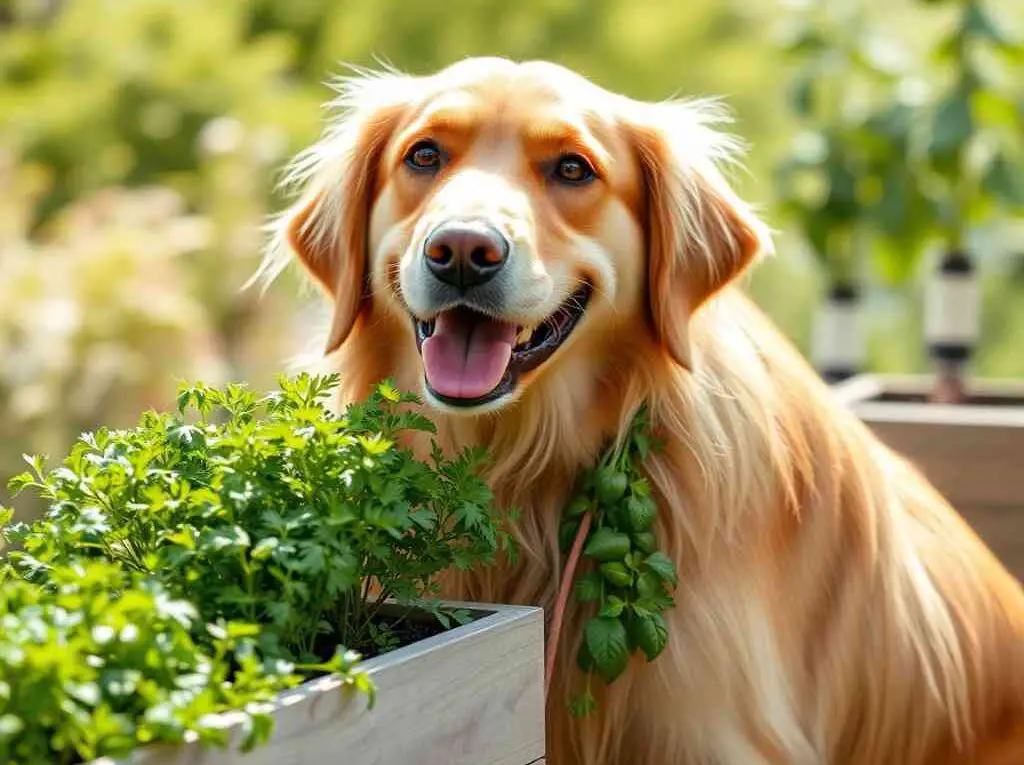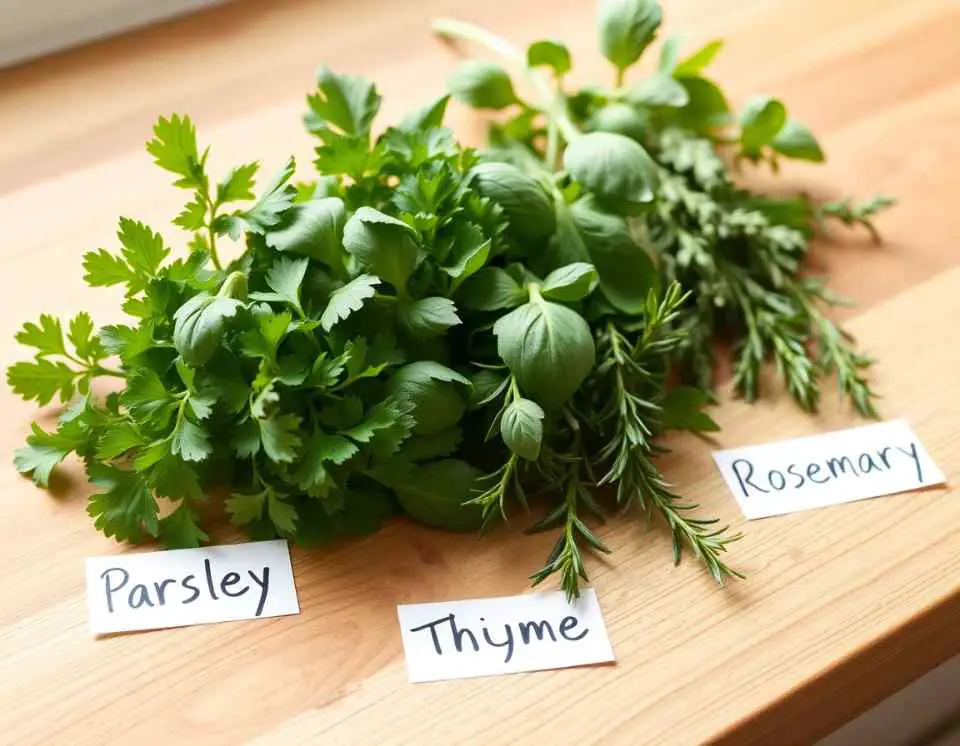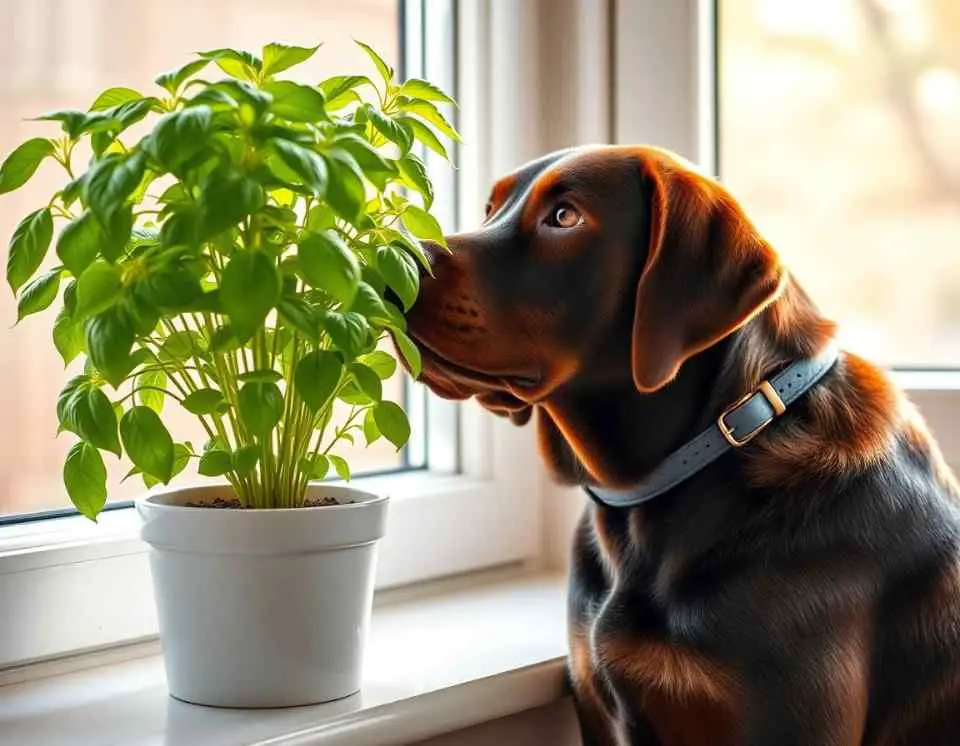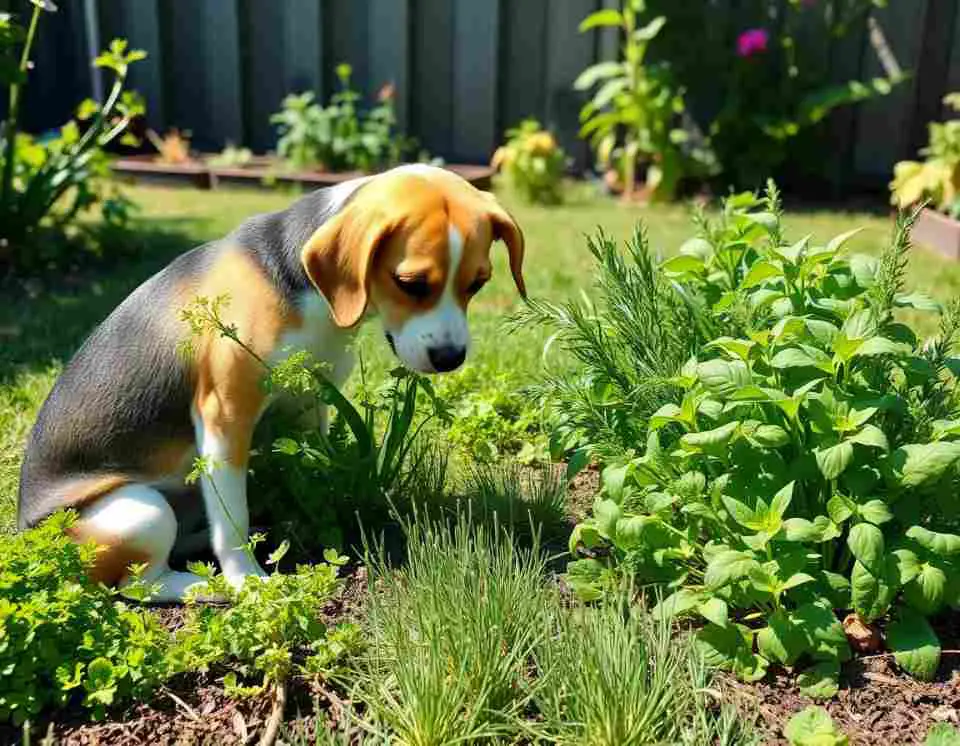Which Herbs Are Safe for Dogs? A Guide for Pet Owners!
Let’s be real: dogs will eat anything. Socks, mulch, your last slice of pizza… you name it. So, if you’re growing an herb garden, and you’ve got a curious sniffer bouncing around, it’s natural to wonder: which herbs are safe for dogs? And which ones are, well, a canine no-go?
I’ve been there, trying to grow basil on the windowsill while my Labrador acted like it was a snack bar. Spoiler alert: not every green leaf is dog-friendly. So if you’re hoping to keep both your pup and your plants alive, you’re in the right place. Let’s talk dog-safe herbs, the ones to avoid, and how to use them without turning your dog into a four-legged salad bar.
Table of Contents
- 1 Why Should You Care About Dog-Safe Herbs?
- 2 Dog-Safe Herbs You Can Actually Feel Good About
- 3 Hold Up – Not All Herbs Are Safe
- 4 How to Safely Introduce Herbs to Your Dog’s Diet
- 5 Common Situations Where Herbs Can Help Dogs
- 6 Personal Story: The Great Parsley Incident
- 7 What About Herbal Supplements for Dogs?
- 8 FAQs About Dogs and Herbs
- 9 Quick Herb Safety Cheat Sheet for Dogs
- 10 Final Thoughts: Go Green, But Do It Smart
- 11 Author
Why Should You Care About Dog-Safe Herbs?
Because unlike us, dogs don’t check labels. They sniff, chomp, and ask questions never.
Some herbs can actually help your dog with digestion, anxiety, or inflammation. Others? They could cause vomiting, seizures, or worse. Not ideal, right?
So, whether you’re a herb gardener, a dog owner, or both (guilty), it’s important to know which herbs belong in your pup’s world.
Dog-Safe Herbs You Can Actually Feel Good About
Here’s the good news: plenty of common herbs are totally fine for dogs in small amounts. Some even pack real health perks.
Basil
Yup, the pizza herb. And turns out, it’s not just good for marinara.
- Benefits: Anti-inflammatory, antioxidant, and can help calm anxiety.
- How to use: Chop up a few fresh leaves and sprinkle them on your dog’s food. Just don’t go full pesto. 😉
Parsley (flat-leaf only)
FYI: Not all parsley is safe. Curly parsley in large amounts can be toxic. Stick to the flat-leaf variety.
- Benefits: Freshens breath and supports kidney function.
- How to use: Mix a small pinch into meals. It’s like doggy mouthwash, without the minty burn.
Rosemary
This one smells amazing and is basically the MVP of roast chicken recipes.
- Benefits: Natural antioxidant and flea repellent. Bonus!
- How to use: A small sprinkle of chopped rosemary in their food is plenty.
Oregano (fresh only)
Dried oregano is much stronger and could upset your pup’s tummy.
- Benefits: Antibacterial and anti-inflammatory properties.
- How to use: Tiny amounts of fresh oregano only. Think garnish, not seasoning.
Cilantro
Love it or hate it, dogs can have it.
- Benefits: Detoxes heavy metals and supports digestion.
- How to use: Mince it up and mix into meals, your dog won’t care about the polarizing taste debate.
Peppermint (fresh only)
This one’s tricky. It’s safe in very small doses, but don’t get carried away.
- Benefits: Eases nausea and gas.
- How to use: A chopped leaf or two is fine. Avoid peppermint oil or candies, those are a solid nope.
Hold Up – Not All Herbs Are Safe
Let’s talk about the shady characters. These herbs might live in your kitchen, but they don’t belong anywhere near your dog’s bowl.
Chives
These guys are part of the onion family, which is toxic to dogs.
- Why it’s bad: Can damage red blood cells and lead to anemia.
- Avoid completely.
Garlic
I know, I know. Garlic is basically in everything we cook. But for dogs? Hard pass.
- Why it’s bad: Same deal as chives, toxic to red blood cells.
- Even small amounts can cause harm over time.
Pennyroyal
Sounds fancy, right? It’s not. It’s actually toxic AF.
- Why it’s bad: Can cause liver damage, seizures, and even death.
- Definitely not worth the risk.
Nutmeg
It’s technically a spice, but since it sometimes shows up in herb blends, I’m tossing it in here.
- Why it’s bad: Contains myristicin, which can cause hallucinations and high blood pressure in dogs.
How to Safely Introduce Herbs to Your Dog’s Diet
So you found a safe herb. Great! But don’t go all-in just yet. Dogs have sensitive systems, and moderation is key.
Here’s how to do it right:
- Start small. Like, really small. Think pinch, not scoop.
- Watch for reactions. Diarrhea, vomiting, or lethargy? Stop immediately.
- Use fresh herbs only. Dried versions can be too concentrated.
- Avoid herb oils. Essential oils = too intense for dog systems.
- Consult your vet. Always good to check before making any big changes.
Common Situations Where Herbs Can Help Dogs
Let’s be honest. Your dog probably doesn’t need a full-on herbal cleanse. But there are moments when herbs come in handy.
For Stressful Situations
Going to the vet? Fireworks? Peppermint and basil may help calm those nerves.
For Tummy Trouble
A little cilantro or parsley can soothe digestion. It’s not a miracle cure, but it helps.
For Aging Dogs
Rosemary’s antioxidant benefits can support brain health. It’s like a senior supplement with flavor.
Personal Story: The Great Parsley Incident
Quick story. A few years back, I left a fresh bunch of flat-leaf parsley on the kitchen counter. My beagle, Oscar, decided it looked like a great chew toy.
At first, I freaked out. But after double-checking, I realized he’d actually picked one of the few safe herbs to binge. He smelled like a salad for two days, but no harm done. Still, I now keep all herbs well out of reach unless I’m the one doing the sprinkling.
What About Herbal Supplements for Dogs?
You’ll see tons of herbal dog chews and powders online. Some are great. Others? Not so much.
Here’s how to shop smart:
- Check the ingredients. Avoid anything with garlic, chives, or pennyroyal.
- Look for vet-approved labels. If it says “formulated by veterinarians,” that’s a good sign.
- Read reviews. Real pet parents often spill the tea.
- Go natural. The fewer fillers and artificial stuff, the better.
FAQs About Dogs and Herbs
Can dogs eat all types of parsley?
Nope. Flat-leaf parsley is safe, but curly parsley contains compounds that might upset your dog.
Is mint safe for puppies?
Mint is generally safe but introduce it slowly. Puppies have sensitive stomachs, so watch for any signs of upset.
What about herbal teas for dogs?
Some herbal teas, like chamomile, are safe in small amounts, but avoid caffeinated or spiced teas.
Quick Herb Safety Cheat Sheet for Dogs
| Herb | Safe for Dogs? | Notes |
|---|---|---|
| Parsley | Yes (flat-leaf) | Freshens breath, rich in vitamins |
| Basil | Yes | Anti-inflammatory |
| Thyme | Yes | Aids digestion |
| Rosemary | Yes | Antioxidant, supports digestion |
| Mint | Yes (in small amounts) | Freshens breath, soothes stomach |
| Cilantro | Yes | Helps detoxification |
| Chives | No | Causes anemia |
| Garlic | No | Toxic to red blood cells |
| Oregano | No | Can irritate stomach |
| Lavender | No | Toxic in large amounts |
| Pennyroyal | No | Causes liver failure |
Final Thoughts: Go Green, But Do It Smart
So, which herbs are safe for dogs?
Basil, parsley, rosemary, oregano, cilantro, and (in tiny amounts) peppermint are all on the green list. But herbs like garlic, chives, and pennyroyal should be kept far away from your pup’s curious nose.
The golden rule? When in doubt, leave it out. And don’t trust your dog to make good choices,they’re the same creatures that eat dryer sheets.
Want to play it safe? Stick to the herbs listed above, use them sparingly, and always check with your vet if you’re unsure. Happy herbing!










